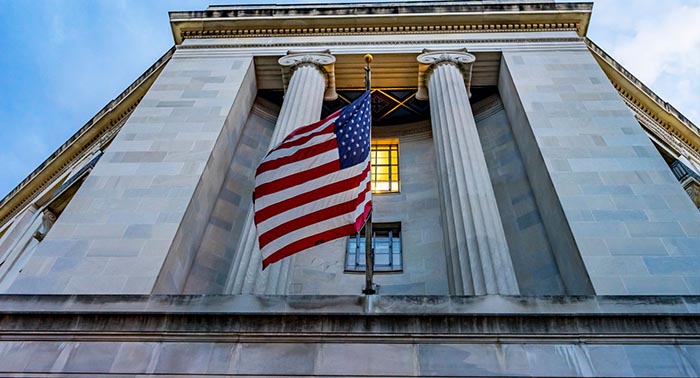
From Higher Ed Dive
By Natalie Schwartz
July 8, 2022
Dive Brief:
The U.S. Department of Justice challenged legal arguments made by private top-ranked colleges in a motion to dismiss a lawsuit in federal court alleging they engage in price fixing to drive down their financial aid packages to prospective students.
Federal law allows colleges to work together on their financial aid formulas if they don’t consider applicants’ ability to pay when admitting them. But earlier this year, former students sued 17 colleges — including Yale, Georgetown and Johns Hopkins universities — arguing they coordinated their aid methodologies even though they aren’t truly need-blind institutions, violating antitrust law.
The colleges asked the judge in April to drop the case, contending they have need-blind admissions and followed antitrust laws. The Justice Department filed a statement of interest with the court Thursday, ahead of a hearing on the motion to dismiss in August.
Dive Insight:
The lawsuit targets current and past members of the 568 Presidents Group, a collective of colleges formed in 1998 to collaborate on their financial aid systems. The group of former students that brought the lawsuit says the group’s price-fixing scheme favors wealthy applicants and increases the price of college.
The Justice Department’s interest in the lawsuit brings more gravity to the case, which could destroy one of the pillars of admissions practices at highly selective colleges.
The agency echoed the lawsuit’s arguments, saying colleges only qualify for a 1994 exemption from antitrust law if they have need-blind admissions. Institutions also must only work with other need-blind colleges on their aid methodology to qualify for the carve-out.
The Justice Department waged a legal battle in the early 1990s against several of the colleges named in the lawsuit over their participation in a separate group that made uniform financial aid offers for certain students. While the institutions settled that lawsuit by agreeing to no longer coordinate aid offers, a 1994 law later allowed need-blind colleges to collaborate on “common principles” to determine aid packages.
The 568 Group is named after that exception, section 568 of the Improving America’s Schools Act. But its members may have been overstepping that law — even if they weren’t aware other members weren’t truly need blind, the Justice Department suggested in its statement.
“An agreement between schools that admit all students on a need-blind basis and schools that do not is beyond the scope of the 568 Exemption,” the agency wrote. “To the extent that at least some of the Defendants do not admit all students on a need-blind basis, the 568 Exemption would not apply here.”
The Justice Department also took aim at the colleges coordinating on need-based financial aid offers.
“If schools agree to a common method that results in an expected family contribution of $20,000 for a particular student, they can charge that student a net price of $20,000 without fear that the student will pick a rival school based on a more generous need-based financial aid offer,” the agency wrote. “An agreement on the methodology used to calculate need-based financial aid offers therefore eliminates an important dimension of price competition.”
Photo: bpperry via Getty Images
Read this and other stories at Higher Ed Dive

